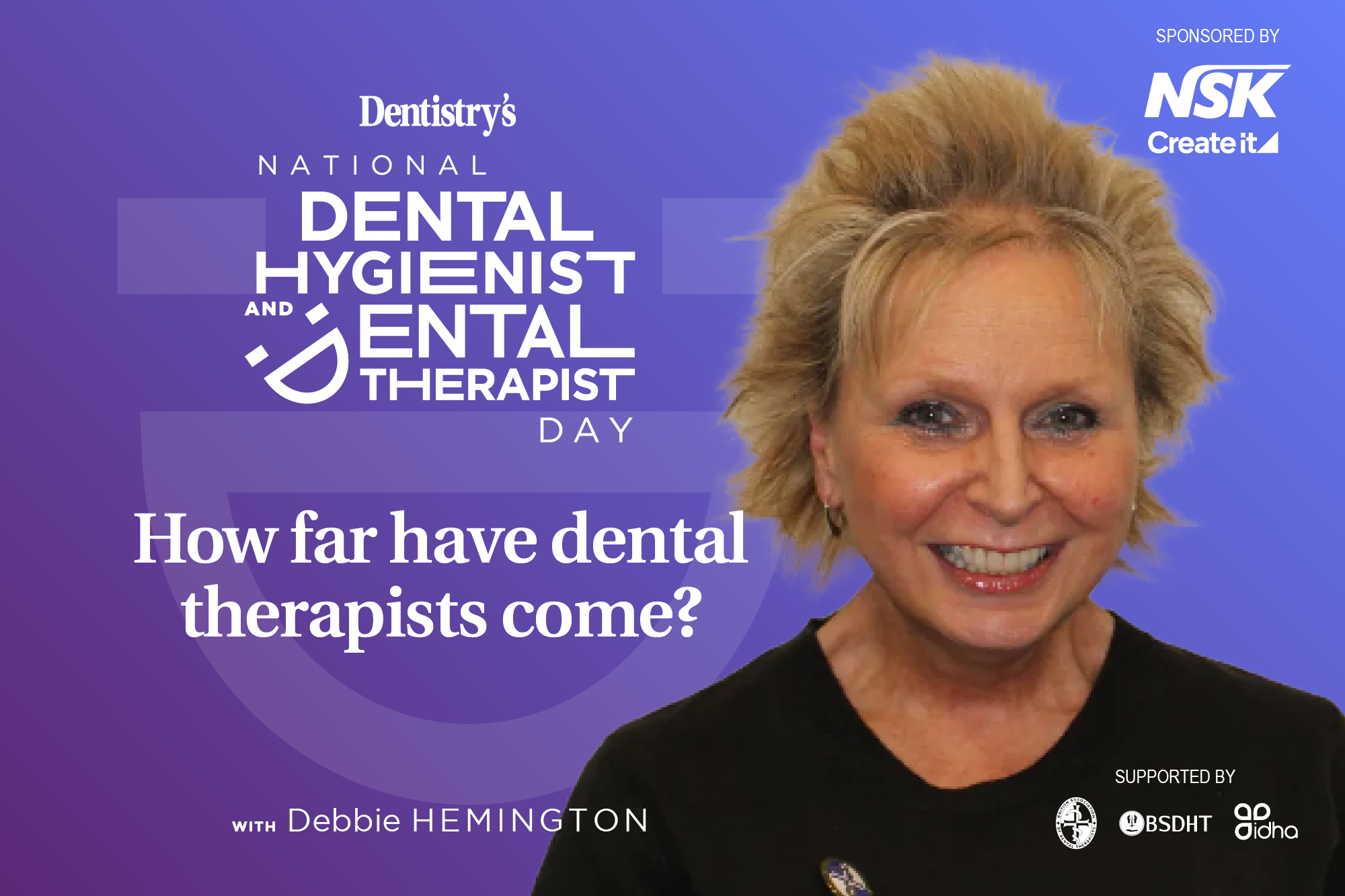
Debbie Hemington looks back at how far dental therapists have evolved since 1960, and the many opportunities open to them today.
The dental therapist has been around much longer than many colleagues realise and are far from a modern invention.
The first dental therapists were known as dental auxiliaries, and training began in 1960 at the School for Dental Auxilliaries in South East London, in the grounds of New Cross hospital in a former isolation unit.
This was thought to be ideal as the individual isolation rooms were perfect to turn into dental surgeries. These early dental auxiliaries were all female, had to be unmarried and studied for two years to then be placed in a community dental clinic chosen by the General Dental Council (GDC).
Early scope of practice
Within remit was ‘simple fillings’, a phrase which unfortunately is still trotted out today about a dental therapist’s scope of practice. Simple fillings actually meant any filling not involving the pulp or the placement of a pin (yes, good old pins!). It was never just Class 1 cavities or primary teeth only.
Dental auxiliaries were permitted to give infiltration analgesia, but not ID blocks – a dentist was needed for that. They also couldn’t work without a dentist on the premises (another urban myth that is still perpetuated today). They could extract primary teeth under local analgesia and were highly trained in dental health education.
Once in post, they formed the backbone of the community dental health promotion projects.
Dental auxiliaries to dental therapists
The name changed to dental therapist in 1979 and New Cross closed in 1983, having been the only training school in the Northern Hemisphere for a while, and training then moved to dual qualification, mainly because therapy posts were so hard to find and they still weren’t allowed to work in general practice.
Dual qualification was needed as there were two separate registers initially – one for dental therapists and one for dental hygienists, both held by the GDC with a fee payable and a separate GDC number for each.
Only once the ‘DCP’ register was introduced were these registers merged, just one GDC number given and all qualifications listed under the one entry.
Please note, there is no such title as ‘hygiene therapist’, you’re either a dental therapist, a dental hygienist or both. These days dental therapists are encouraged to use their title no matter which role they are doing so that both dental teams and the public become accustomed to the title.
Scope of practice expansion
2003 marked one of the biggest steps forward in the dental therapist scope of practice, when ‘extended duties’ were introduced in 2002. This added ID blocks, impressions, pulpotomies and pre-formed metal crowns on primary teeth, allowing them not only to work in general dental practice for the first time, but also own a practice.
ID blocks could only be given if a dentist was on the premises at the time, but that changed in 2013 with the introduction of direct access which was a huge change to dental landscape. This meant it was finally possible to access a dental therapist or dental hygienist without having to see a dentist first.
This change was driven by the Office of Fair Trading and was opposed by many in the dental establishment at the time, but it is now widely seen by all as a positive step.
The world is your oyster
Today’s dental therapists can make the world their oyster, to a certain extent. They can train in inhalation sedation, Icon resin infiltration and tooth whitening as post graduate skills, as well as increase their restorative skills, with post graduate diplomas being available to them such as throught Tipton Training and Smile Academy.
They are welcomed on composite courses by people such as Monik Vasant, Jason Smithson and Avant Garde run by Robbie Hughes and the Singing Dentist, Milad Shadrooh. In addition, they can further their periodontal knowledge with courses by Ian Dunn, Hatem Algraffe and Reena Wadia, and of course they can now study for masters degrees and even PhDs, and many do!
This is something that would have been unthinkable to those pioneering ladies in 1960, to who we owe so much and who we must never forget.
Thank you for being our suffragettes!
With thanks to our sponsor, NSK.
Celebrating National Dental Hygienist and Dental Therapist Day:
- Hygiene and therapy-led dentistry: a new standard of patient care
- Why preventive dentistry is the way forward
- How can we maximise the impact of dental therapists?
- Why everyone wins when you utilise dental therapists
- Supportive care and maintenance of dental implants
- Happy National Dental Hygienist and Dental Therapist Day!
- The evolution of dental hygienists and dental therapists
- Implementing a therapy-led model in practice
- Empowering dental hygienists and dental therapists.
- Introducing National Dental Hygienist and Dental Therapist Day.
Follow Dentistry.co.uk on Instagram to keep up with all the latest dental news and trends.


